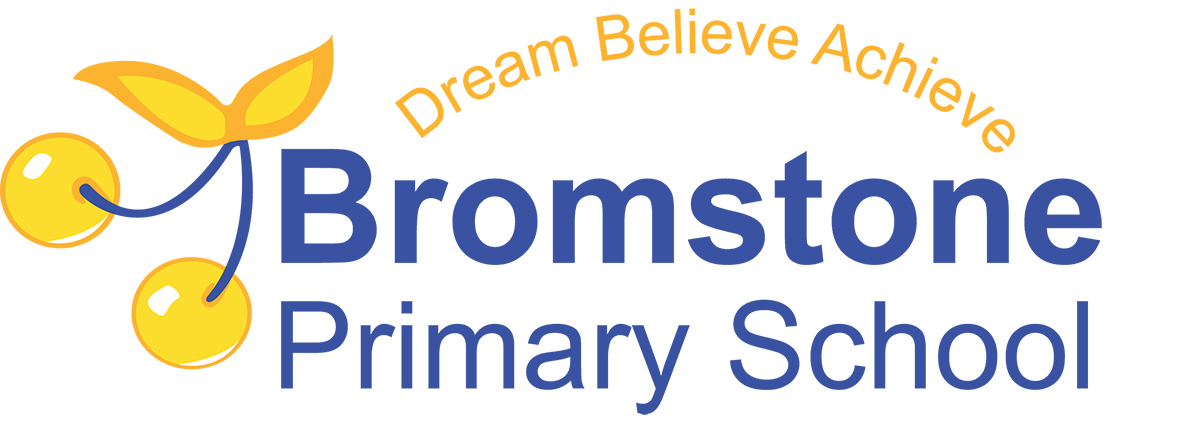
Bromstone Primary School
PSHE
The importance of the knowledge, skills and understanding young people gain from PSHE lessons is immeasurable. Through PSHE lessons, pupils develop a deep understanding of themselves and others, in addition to the communities and systems of society. PSHE learning teaches young people vital life skills, such as keeping themselves safe, and helps prepare them for their futures.
Although PSHE is a non-statutory subject, some elements of PSHE are statutory. Schools must teach relationships education under the Children and Social Work Act 2017, in line with the terms set out in statutory guidance. We must teach health education under the same statutory guidance.
PSHE is made up of three core themes:
- Core theme 1- Health Education. In short, this core theme covers content to teach pupils how to stay healthy (both physically and mentally).
- Core theme 2- Relationships Education. In short, this core theme covers content to teach pupils how to recognise and provide positive, caring relationships.
- Core theme 3- Living in the Wider World. In short, this core theme covers content to teach pupils about society and the economy.
Core themes 1 and 2
Core themes 1 and 2 are statutory. At Bromstone Primary School, Relationships and Health Education is mapped out carefully and taught to both Key Stages 1 and 2 using the government guidance. Details about the curriculum content for Relationships Education and Health Education can be found at the end of this page.
Core theme 3
Although core theme three is not statutory, at Bromstone Primary School, we know the value of pupils learning about living in the wider world.
What does Bromstone Primary School teach for core theme 3, Living in the Wider World?
Although Core theme 3 -Living in the Wider World - is taught discretely as part of our PSHE programme, we do include elements within and across other areas of the school curriculum.
How are these objectives organised for each year group?
Objectives for all core themes are divided across the year groups. Some objectives are repeated across year groups. This is so that the objective is embedded; learning something often takes more than one lesson and can easily become diluted or forgotten without repetition. Lessons and activities themselves are not repeated, but the learning outcomes are strengthened by exploring one objective in different ways at different times and at different depths.
How else is PSHE embedded into school life at Bromstone Primary School?
At Bromstone Primary School, so much of our school ethos is inspired by personal, social, health and economic development of our pupils. Below are just some examples of how PSHE weaves through our day-to-day lives at Bromstone.
- Assemblies with topical themes.
- A creative curriculum.
- School ethos, e.g. positive behaviour policies and focus on pupil and staff relationships, core values, British Values.
- Celebrating local, national and global events.
- Community projects and events organised by the school or members of the community.
- Celebration assemblies, which often focus on personal development, core values and PSHE traits.
- Head Boy and Head Girl elections and contributions.
- School council nominations and elections
- Well-being provision for all
- Some school trips (for example visits to the Houses of Parliament) and special visitors.
Relationships and Sex Education
Are pupils taught 'Relationships and Sex Education' (RSE) at Bromstone Primary School?
What is Relationships and Sex Education?
Relationships and Sex education (or RSE) refers to learning about the emotional, social and physical aspects of growing up, relationships, sex, human sexuality and sexual health.
RSE lesson are not about the promotion of sexual activity.
Is RSE the same as Relationships Education or Health Education?
RSE is different to ‘Relationships Education’, which focuses mainly on recognising, understanding and developing positive and healthy relationships. It is also different to ‘Health Education’, which focuses mainly on mental and physical wellbeing.
The teaching of both Relationships Education and Health Education is compulsory for all schools.
For primary schools, RSE is not compulsory, but is strongly advised by the DFE. This means that schools should decide what to teach in relation to Relationships and Sex Education (RSE) in consideration of the pupils at their school.
Please note that all schools must teach science. Some science lessons cover some of the biological elements of Relationships and Sex Education.
Science and RSE at Bromstone Primary School
At Bromstone Primary School, biological elements of RSE are taught through statutory science lessons. The class teacher teaches these science lessons. These are important lessons that offer pupils knowledge and understanding of the human body and its processes. To explore the science content which relates to RSE, please see the RSE policy at the end of this page.
What other elements of RSE are taught at Bromstone Primary School?
As well as teaching science content at Bromstone Primary School, we also provide additional RSE lessons to Year 6 pupils. These elements are non-statutory. For details about the content and delivery of RSE lessons taught to Year 6, pleaser read the RSE policy.
Does my Year 6 child have to take part in RSE lessons?
Parents and carers have the right to withdraw their child from RSE lessons. Please note, this does not include withdrawal from statutory science lessons that relate to RSE. Unless parents opt-out of RSE lessons, all pupils will take part. See the RSE policy for more information about withdrawing your child from RSE.